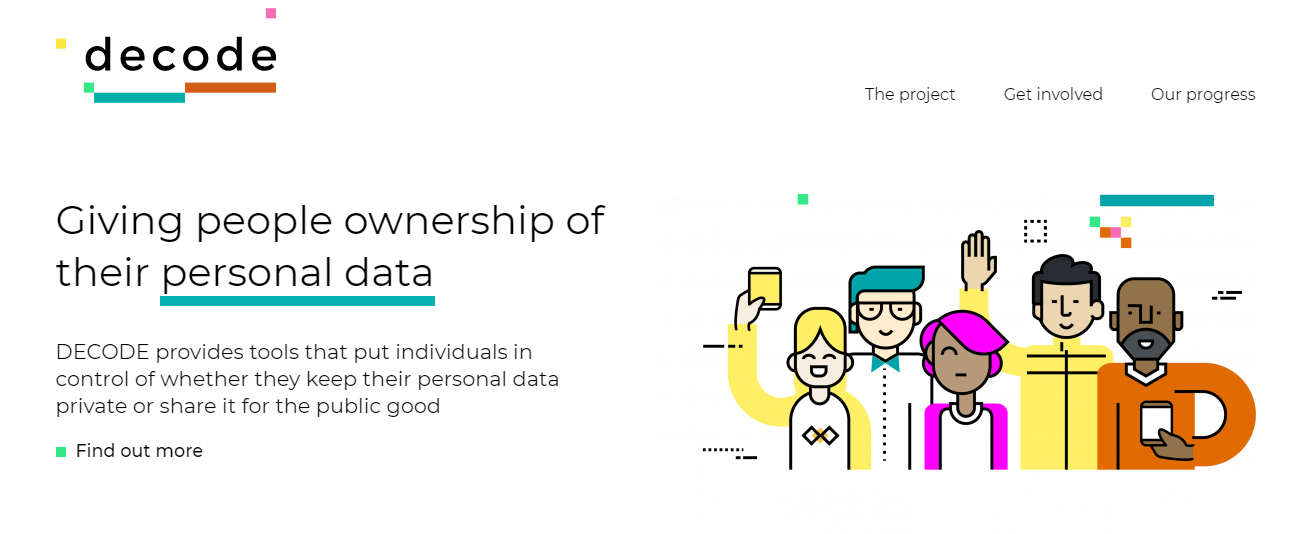
Being drawn by digital affairs have its consequences. It is indeed true that everything looks easier and almost immediate if it is done through online platforms. What cost quite a lot of an effort ten years ago, now it just can be done by clicking or tapping on the screen of a device, without any need of standing up of our sofas.
However, almost all sites now set on the internet asks for personal details to be inserted. Basically, the official answer is to avoid the intrusion of robots and some sort of misbehave from the user side. Whatever this means, the thing is that after years and years of signing up in new breakthrough services of music and endless e-commerce sites with evident lack of security we might end up in a situation of a phishing problem or identity fraud.
That could be a real nightmare for an average user, though none of that happens as often as it might. What really does happen is that we don’t have control any more of who have or where are our personal data, and what do the companies do with them. This is one of the consequences of being on the internet, users data become a trade asset, and a very high valued one.
Losing our data trail
We live in a world where Google now has over 90 per cent market share in internet searches. Facebook, having just hit two billion users, has a penetration of about 89 per cent of internet users. Therefore, the increase in global connectivity and the ‘datafication’ of everyday life means that people produce rich trails of information all the time – from location, to shopping and browsing habits, to ‘likes’ on social media. This information has become the central driving force for value creation on the web, as users have been content to sign away use of their data to advertisers, in return for a range of ‘free’ services.
Precisely, this loss of control of personal data and having become a means of profit for the companies, have driven the creation of different platforms who fight this off and stand for a user’s data to be back to their legit owners. DECODE (DEcentralised Citizen Owned Data Ecosystem), is an EU funded project that will create tools that put individuals in control of whether they keep their personal data private or share it for the public good.
They highlight in a recent report that “the use of personal data as a commodity has amplified in scale and complexity, leaving regulators struggling to catch up. People have surrendered their personal data and have limited control over how this is used. This has led to strong market concentration in the digital economy, with a handful of digital platforms being able to gather, aggregate and analyse large amount of data.”
It is thought that over five hundred million adblocker downloads is a symptom of a market which isn’t working well for people. User experience of being on the web is increasingly one of being tracked, targeted, and hacked, and this is reflected in the numerous user surveys about feelings of disempowerment about how people’s personal information is managed online.

Decoding ‘DECODE’
There is where DECODE starts to make their point. They define themselves as it follows: DECODE is about giving people ownership of their personal data so they can secure their privacy and reclaim their digital sovereignty. It will create new technologies which put them in control of how their data is used so they can decide who has access, and for what purposes. In doing so, DECODE will create a new digital economy ecosystem, enabling in particular the rise of more localised, democratic models for pooling and sharing data.
If Internet was meant to be open and accessible, some of the giants companies have taken it for them, removing competitors and users capabilities. That is why DECODE is willing to focus on a key principle of this will be the pursuit of social value over purely economic return. It will also enable governments to be more responsive to citizen needs.
In order to do so, DECODE will create a number of practical tools. These will include personal data storage options, the ability to specify in granular detail how data is shared and with whom, privacypreserving tools which enable authenticated digital participation without revealing private information, and a mechanism for data to be blended so that it can be used by governments, researchers, innovators and not-for-profit organisations.
These break down broadly into three different categories
-
Giving people privacy-preserving mechanisms for interacting with online services. This could include enabling people to participate in digital democracy without having to reveal their identity but still being validated and accounted for.
-
Supporting the development of platform co-operativism – models of economic exchange which have social and ethical objectives. Platform co-operatives offer a feasible model to encourage the sharing of data, embedding co-ownership, transparency and democratic participation over how data is managed and used. Models could include the sharing of accommodation, transport, neighbourhood items like tools, or the exchange of labour.
-
Enabling data to be used for social good through the creation of a family of data commons. This could include a combination of personal data, city open data, and private data, as in the example of Smart Citizen Lab, which brings together citizen sensing data on air quality, noise pollution, water quality, or the creation of local co-operatives such as a neighbourhood energy scheme.
It is time to take what is what supposed to be for everyone. Internet is an open and a democratic place where everyone is welcome and can be part of. Platforms such DECODE are taking the lead, and we all should follow.

Hernaldo Turrillo is a writer and author specialised in innovation, AI, DLT, SMEs, trading, investing and new trends in technology and business. He has been working for ztudium group since 2017. He is the editor of openbusinesscouncil.org, tradersdna.com, hedgethink.com, and writes regularly for intelligenthq.com, socialmediacouncil.eu. Hernaldo was born in Spain and finally settled in London, United Kingdom, after a few years of personal growth. Hernaldo finished his Journalism bachelor degree in the University of Seville, Spain, and began working as reporter in the newspaper, Europa Sur, writing about Politics and Society. He also worked as community manager and marketing advisor in Los Barrios, Spain. Innovation, technology, politics and economy are his main interests, with special focus on new trends and ethical projects. He enjoys finding himself getting lost in words, explaining what he understands from the world and helping others. Besides a journalist, he is also a thinker and proactive in digital transformation strategies. Knowledge and ideas have no limits.



























